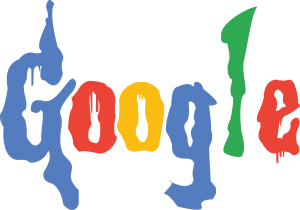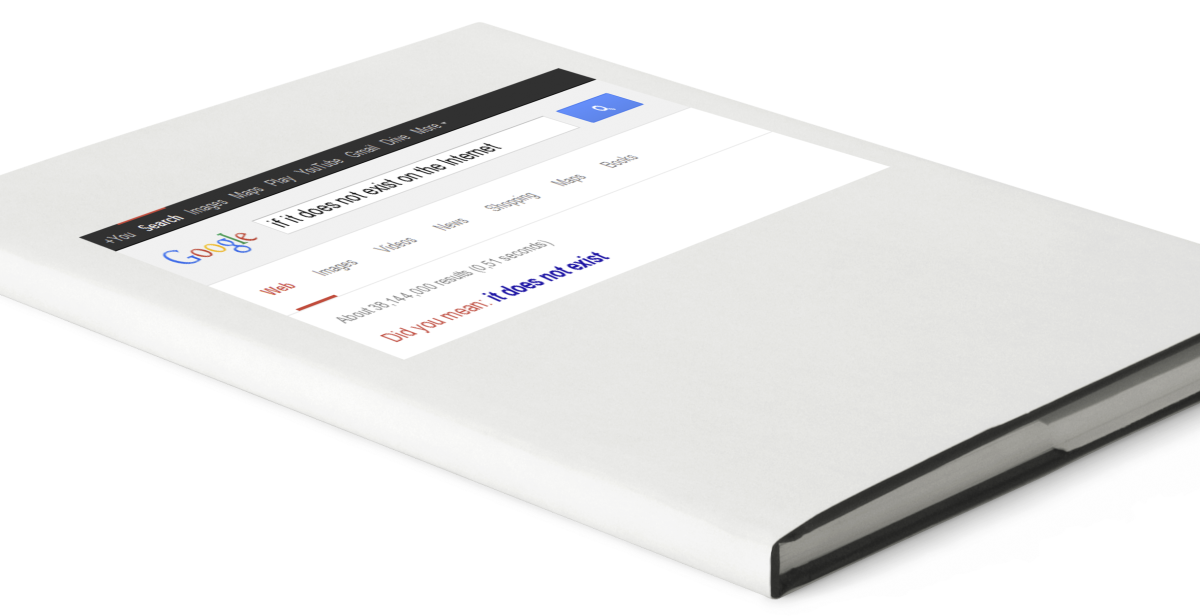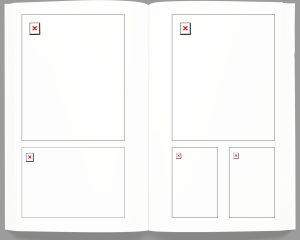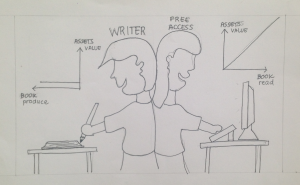“…Doing so means posting our works on the world wide web so that anyone, anywhere, at any
time can have access to them. In this way, we will ensure that our work exists.”
If a tree falls in the woods and no one sees it does it make a noise? If no one reads/see your
academic or professional work (and arguably your personal work, your artistic work) does it
exist? Can things exist inside a vacuum? If knowledge or ideas are not shared, that is unable to
be passed from one person to another and carried on to further social circles, cultural circles,
economic circles, etc., do those ideas die? Does an idea have to be shared in order to have a
life; must it be shared on the internet?
“UbuWeb embraces the distributive possibilities inherent in the web’s original technologies: call
it radical forms of distribution.”
What is the purpose of the internet; is it still to be a radical platform to share information or has it
mutated and become more commercially driven (broadband, access, cost, government control
vs. control in the hand of people vs. control in the hands of corporations are all things one
should consider when answering)?
“But we are in a unique position — I’d call it a privileged position — to be able to give our work
away, ensuring that it exists.”
“Can you imagine taking a laptop to the beach to read an e-book? Not yet. But it will happen. So
for the time being, our books need to have an online counterpart which extends, updates or in
some way acts as a corollary agent to the paper edition.”
This paper was published in 2005, ten years ago. One needs to consider if the points it makes
are still as relevant today as they were ten years ago because people do take e-readers to the
beach now. What has changed in the online climate since Goldsmith published this paper? In
what ways has [academic] information become more available to the public because of the
internet. Has it? (Google books) Or is it become closer to the Barnes and Noble example
Goldsmith gives, that what is available is narrow, or the online purchasing examples, only
available to those who can shell out for it?
“But almost everyone has access to the web (and if not now, they soon will). From this stems
numerous opportunities.”
Is this true or the position of someone who lives in a privileged position who has nearly unlimited
internet access?
“Older media needs to be digitized in order to exist.”
How does the reemergence and popularity of analog products like records or instant film fit into
this idea? Goldsmith addresses vinyl records specifically but the climate ten years ago
regarding the subject is different. The Impossible Project, which was successful was the
initiative to start producing Polaroid film again after production ceased. Nowadays when you
walk into any Urban Outfitters you can purchase a pack of Polaroid film, a distinctly analog
product that does not exist online. However the roots of The Impossible Project are online. I
remember signing a petition to show my support for the project in high school. The support and
success of the project probably would not have been possible without the internets ability to
make the project accessible to millions of people; much more than the bubble of photographers
and enthusiasts who originally started the endeavor. Or take fujifilm instax cameras and film,
another instant but different film project. I work at a summer camp and two years ago I was the
only person who knew of or owned such a camera. Last year it was myself and one 14 year old
girl. This summer, in 2015, several campers, ages ranging between 13-18 owned such cameras
and utilized them daily. And it can be argued that girls that age have real buying and market
power (think of the wild success of things girls that age support — Twilight, The Hunger Games,
etc.,) so it’s not a niche group, as I was in 2013 with my fujifilm camera as a photographer who
lived primarily in New York City. These analog products are having a moment again and for so
many people they do exist, they are real. They are real and live in conjunction with their digital
counterparts. Instagram posts of polaroid pictures are seen everywhere. Records are now sold
with coupons for digital copies. Is this the future of analog and digital, a world where the two can
coexist simultaneously, each with their merits and short comings, in a symbiotic relationship?
All quotations come from Kenneth Goldsmith’s online article “If It Doesn’t Exist On The Internet, It Doesn’t Exist”




